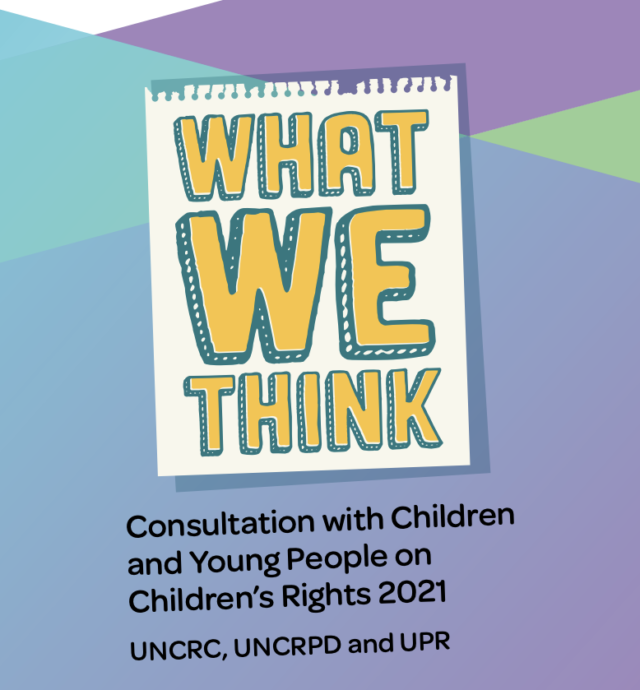What We Think | UNCRC, UPR, and UNCRPD Consultation 2021 with Children and Young People
Published in 01st of May 2023

Contributors
Author: Department of Children, Equality, Disability, Integration and Youth
Publisher: UNCRC, UNCRPD and UPR
Date: 2023
Geographic Coverage: Ireland
Type of Resource: Report
Sector/setting: Government
Vulnerable groups: Children, Young People
Developed with children and young people? Yes
Type of participation: Consultations With Children
Availability: Open Access
Keywords: Child, Participation, UNCRC, Voice, Young People
Notice: Array to string conversion in /home/madcrad/hubnanog/wp-content/themes/visual-composer-starter-child/functions.php on line 93
Introduction
The Department of Children, Equality, Disability, Integration and Youth (DCEDIY) undertook a series of consultations with children and young people to secure their views on the implementation of children’s rights in Ireland. The consultations were carried out in the context of the State’s preparations for Ireland’s next reports to the UN Committees on the UN Convention on the Rights of the Child (UNCRC), UN Convention on the Rights of Persons with Disabilities (UNCRPD) and UN Human Rights Council under the Universal Periodic Review (UPR) process. Two sets of consultations were undertaken. 1215 children aged between 4 and 13 years were recruited through 21 primary schools, and 46 young people aged 13 to 18 years recruited from selected Comhairle na nÓg (youth councils).
As the consultations were undertaken during the Covid-19 public health emergency the schoolbased consultation sessions were facilitated by the class teachers with materials provided by the DCEDIY. The young people were consulted during three online sessions facilitated by the National Participation Office and Hub na nÓg. Participating children and young people came from a variety of locations (urban/rural) and had a good representation of harder to reach populations such as children living in disadvantaged areas, non-English speakers, children with special educational needs including Autistic Syndrome Disorder (ASD).